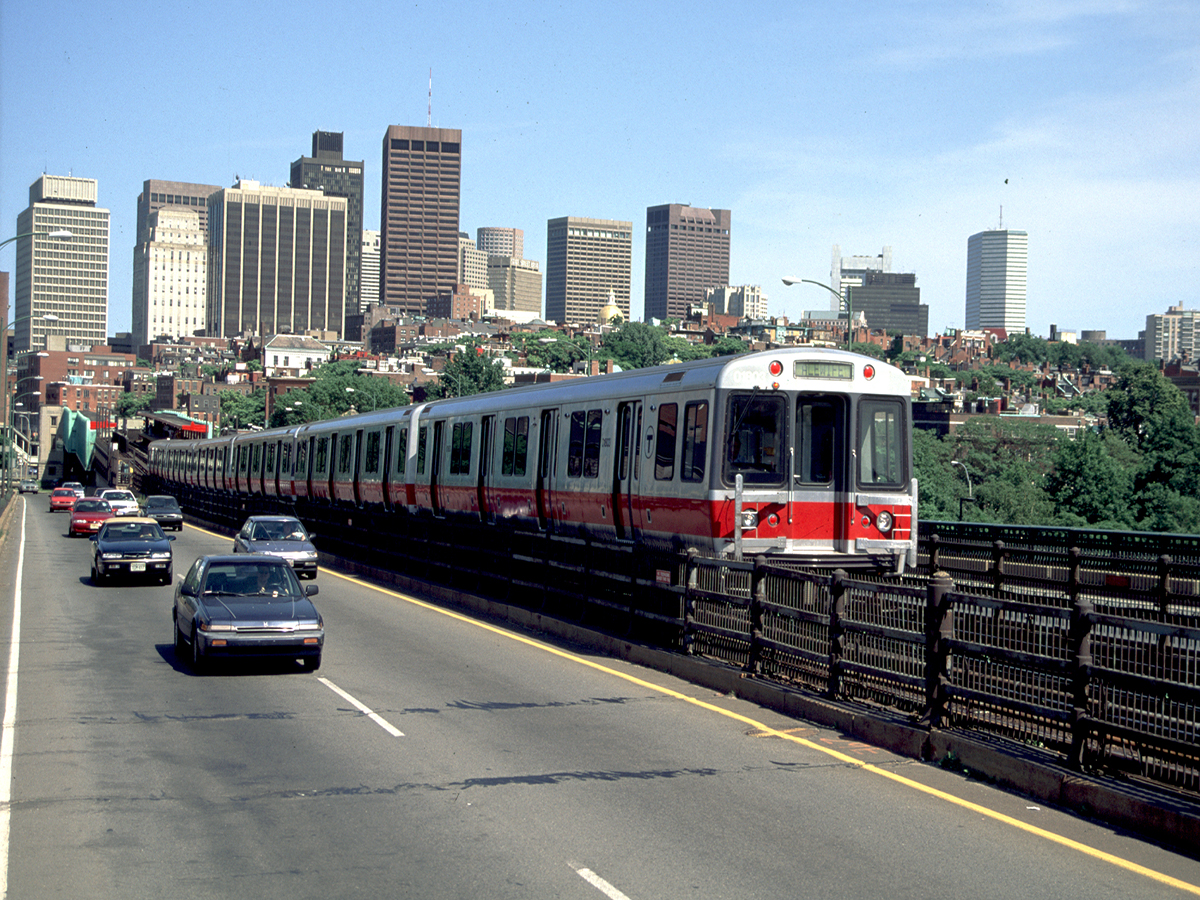The Skyrocketing Cost of Maintaining The MBTA

Red Line train traveling on Longfellow Bridge. Photo via Mass. Office of Tourism.
The list of fiscal challenges facing the Massachusetts Bay Transportation Authority continues to grow with news on Monday that the cash strapped agency faces a maintenance backlog that could exceed $7.3 billion.
The revised eye popping state-of-good-repair figure, up from a winter estimate of $6.7 billion and a 2009 report that put the cost at $3.1 billion, comes on the heels of the announcement that the Green Line Extension is facing a possible cost overrun of $1 billion.
The higher numbers are being chalked up by Transportation Secretary Stephanie Pollack to more accurate and detailed reporting of the MBTA’s assets. According to the State House News Service, the MBTA now counts 250,000 assets under its control, a huge jump from the 95,316 in 2009. Assets can be anything from a rail to a switch to a train. The current assessment of the backlog is not complete and is missing crucial information on portions of the commuter rail.
This information could not come at a more difficult time for the MBTA, an agency grappling with questions of how to balance maintenance of an aging system struggling from years of neglect with much needed expansion to accommodate a growing urban core and increasingly carless population. Pollack, in her remarks to the press, was quite aware of this.
“It’s important to have this information at the same time as the board and the Commonwealth are making decisions about the Green Line because another billion dollars at the Green Line is money that isn’t going into the assets we already have, and it’s a balancing act,” said Pollack.
Still, Pollack said, the MBTA needs to do both, not one or the other.
The latest reevaluation of how broken the MBTA is will not make it easy for transportation advocates to press for big ticket projects like the North-South Rail Link, the expansion of South Station, South Coast Rail, the Indigo Line, Phase III of the Silver Line, and the Green Line Extension. If the MBTA spent $765 million annually instead of the $663 million it currently spends, the cash-strapped agency still wouldn’t be in a state-of-good-repair systemwide until 2040, assuming all goes well and nothing catches on fire, this is the MBTA, after all.
The backlog does not mean MBTA service is going to come to a screeching halt any time soon but it will continue to struggle when put to the test by large crowds or extreme weather. The report found that the bulk of the bridges and crossing in the system are up to snuff while the rails and and rolling stock are not. Buses, meanwhile, make up a small percentage of the issues facing the MBTA’s backlog.
One thing that has not been clearly answered is why the price tag for keeping the MBTA in a state-of-good-repair is so outrageous. While the fiscal control board is considering hiring outside consultants to look at the skyrocketing costs of the Green Line Extension, it’s unclear if they are going to go a step further and do the same with the MBTA’s out-of-control systemwide maintenance costs.


